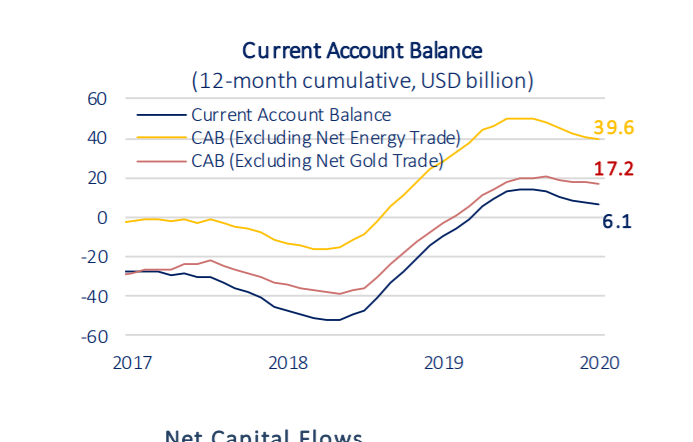Turkish exports increase amid crossroads in global trade
 trade
trade
Exports worldwide declined modestly in the first quarter of the year, while Türkiye managed to buck the trend with growth that helped slightly lift its share in global shipments, according to official data.
Global exports fell by 0.6% to nearly $5.92 trillion (TL 193.38 trillion) in the January-March period, the Trade Ministry said on Tuesday, citing the statistics released by the World Trade Organization (WTO). In contrast, Türkiye’s outbound shipments grew by 3.6%, reaching $63.6 billion during the same period, the ministry said in a statement. Exports are among the priority areas that the Turkish government is seeking to rely on as it rebalances the economy’s growth composition, which has, over the years, relied mainly on private consumption. That can be challenging in a high inflationary environment, like in Türkiye, as robust domestic demand can be one of the main drivers of inflation and prove hard to curb. Authorities have delivered aggressive monetary tightening over the past year to cool demand and rein in inflation, which is currently running at over 75%. That is said to mark the peak as a series of interest rate hikes and a relatively stable Turkish lira bring relief in the second half of the year. Flipping the chronic current account and trade deficits into surpluses is also high on the agenda since the government started reversing years of loose monetary policy after last May's presidential and parliamentary elections. The Trade Ministry said Türkiye’s achievement came amid a challenging global economic environment. On an annualized basis, global exports dropped by 4.2%, amounting to almost $23.81 trillion, the WTO data showed. Türkiye’s shipments rose by 0.8% to $257.6 billion, the ministry said. "Despite the decline in global exports, our country's export growth has persisted," it stated. "In the first quarter of 2024, the trend of our annualized export share in global trade continued to rise, reaching 1.082%, up by 0.05 percentage points from the first quarter of 2023." Despite multiple challenges, including devastating earthquakes, Türkiye’s exports reached a third straight annual peak, totaling nearly $256 billion in 2023. That compared to the previous year’s $254 billion and took the nation’s share in global exports to 1.08% from 1.02% in 2022, marking the highest level in history. The Trade Ministry attributed Türkiye’s success to its focus on value-added, innovation, and competitiveness. "We are dedicated to enhancing Türkiye’s share in global trade through our strategic policies. By leveraging global trade trends, we aim to strengthen our position in the global supply chain and build on our achievements." Global goods trade fell 1.2% last year, only its third decline in 30 years in 2023, according to the World Trade Organization, driven by the lingering effects of high energy prices and inflation. However, it should rebound this year, although more slowly than previously expected, the Geneva-based trade body said in its “Global Trade Outlook and Statistics” report, published in April. It said easing inflationary pressures should help the volume of merchandise trade increase by 2.6% in 2024 and by 3.3% in 2025. The WTO had previously forecast a 3.3% rise in 2024. Before last year, global trade had only fallen in two years since the WTO was formed in 1995. Global trade fell 5% during the pandemic in 2020 and more than 12% during the global financial crisis of 2009. In 2023, import demand was particularly weak in Europe, Türkiye's biggest trade partner, where the impact of higher energy prices and inflation was most intense. The WTO said risks to its 2024 forecast were skewed to the downside, with its forecast range from minus 1.6% to plus 5.8%. The outlook is clouded by wars in Gaza and Ukraine, geopolitical tensions, attacks in the Red Sea, tensions between the U.S., Europe, and China, and economic policy uncertainty.dailysabah.com




